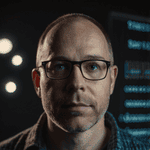Is Our Reality Just a Simulation or Something More

The Concept of Reality in the Digital Age
In today’s fast-paced technological landscape, the question of whether our reality is merely a simulation has gained significant traction. With advancements in virtual reality, artificial intelligence, and digital environments, many are beginning to wonder: Are we living in a sophisticated simulation, or is our existence something more profound? This article delves into the intriguing concept of simulation theory, exploring its implications and the philosophical questions it raises.

Understanding Simulation Theory
Simulation theory posits that what we perceive as reality might be an artificial construct, akin to a highly advanced computer simulation. This idea has been popularized by various thinkers and has even found its way into mainstream culture, notably through films like “The Matrix.” But what does this mean for us?
Key Points of Simulation Theory
- Technological Advancement: As technology progresses, the line between reality and virtuality blurs. With the rise of virtual reality and immersive experiences, the possibility of creating a simulation becomes more feasible.
- Philosophical Implications: If we are indeed living in a simulation, it raises profound questions about consciousness, free will, and the nature of existence itself.
- Scientific Perspectives: Some scientists and philosophers argue that if advanced civilizations exist, they might create simulations of their ancestors, leading to the possibility that we are living in one.
The Role of Technology in Shaping Our Perception
Technology plays a crucial role in shaping how we perceive reality. From smartphones to virtual reality headsets, our experiences are increasingly mediated by digital interfaces. This raises the question: Are we becoming more disconnected from the physical world?
The Impact of Virtual Reality
- Immersive Experiences: Virtual reality offers experiences that can feel incredibly real, leading users to question the nature of their surroundings.
- Social Interaction: Online platforms allow for social interactions that can sometimes feel more genuine than face-to-face encounters, further complicating our understanding of reality.
- Escapism: Many people turn to digital environments to escape the challenges of real life, which can lead to a preference for virtual experiences over tangible ones.

Philosophical Questions Arising from Simulation Theory
The idea that we might be living in a simulation prompts several philosophical inquiries. If our reality is a simulation, what does that mean for our understanding of life, morality, and purpose?
Major Philosophical Questions
- What is Consciousness?: If we are simulations, what does that say about our consciousness? Are we merely programmed entities, or do we possess genuine awareness?
- Free Will vs. Determinism: If our actions are predetermined by the simulation, do we truly have free will? This question challenges the very foundation of moral responsibility.
- The Nature of Reality: How do we define reality if it can be simulated? This question forces us to reconsider our understanding of existence itself.
The Intersection of Science and Philosophy
As we explore the implications of simulation theory, it becomes clear that science and philosophy must intersect. Scientific advancements can provide insights into the nature of reality, while philosophical discourse can help us interpret these findings.
Current Scientific Perspectives
- Quantum Mechanics: Some interpretations of quantum mechanics suggest that reality is not as fixed as we perceive it, aligning with simulation theory.
- Artificial Intelligence: The development of AI raises questions about consciousness and the potential for creating sentient beings within a simulation.

The Future of Reality: What Lies Ahead?
As technology continues to evolve, the debate surrounding simulation theory will likely intensify. With the potential for creating increasingly sophisticated simulations, we must consider the ethical implications of such advancements.
Potential Developments
- Enhanced Virtual Reality: As VR technology improves, the lines between reality and simulation may become even more indistinguishable.
- Ethical Considerations: If we can create sentient beings within a simulation, what ethical responsibilities do we have towards them?
- Exploration of Consciousness: Future research may uncover new insights into the nature of consciousness, potentially reshaping our understanding of reality.
Final Thoughts: Are We Living in a Simulation?
The question of whether we are living in a simulation remains open-ended. As technology advances and our understanding of consciousness deepens, we may find ourselves closer to answering this profound question. Whether we are in a simulation or not, the implications of this theory challenge us to think critically about our existence and the nature of reality itself.
As we navigate this complex landscape, one thing is certain: the pursuit of knowledge and understanding will continue to drive humanity forward, regardless of the nature of our reality.
For further reading, check out these articles that delve deeper into the implications of simulation theory and its intersection with technology and philosophy:
- The Simulation Hypothesis: A Philosophical Exploration
- Virtual Reality and the Future of Human Experience
- Consciousness in the Age of AI: What Does It Mean?
Read on...
Table Of Contents
Legal Stuff

